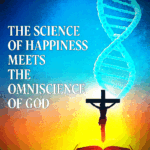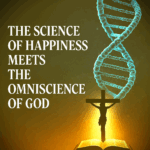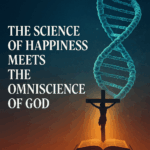“All the First-born of my Sons I Redeem” – Exodus 13:1-3,11-15
1. Introduction – a great sacrifice?
What is a great sacrifice that you have made in your life? What is one desirable thing you have said “no” to for the sake of another desirable thing that you said “yes” to? How difficult was it to give up the first thing? Think about it for a moment…
Maybe some of you sacrificed that second helping of turkey yesterday? You said “no” to turkey so you could say “yes” to dessert. Or maybe you said “no” to extra turkey for the “yes” of comfort for your belly and for the clothes you were wearing.
When I was on the high school wrestling team, I remember times when I said “no” to meat and potatoes for a few days, eating mostly calorie-skimpy lettuce, celery, and boiled eggs – all so that I could say “yes” to my intended weight category for the upcoming tournament.
Maybe you said “no” to a lucrative job offer in order to say “yes” to being close to family.
Those of us who are parents may remember the time when we made that fateful, irreversible decision to say “no” to padded bank accounts, “no” to personal freedom, “no” to sleep-in days… all in order to say “yes” to having children. Yup, that is certainly a sacrifice, but probably one that we would never trade back.
Today’s Old Testament reading talks about the ancient people of Israel making sacrifices for first-born sons, but not sleep, freedom, or money. It’s about the sacrifice of animals. Exodus 13 contains three key words – Consecrate, Redeem, and Remember. We will unpack those words in their original context, and then connect them with the presentation of Jesus in the temple, and finally apply all of that to our lives.
1. Consecrate
The first key word is “Consecrate.” That’s the first thing we heard in that Old Testament reading: “Consecrate to me all the firstborn. Whatever is the first to open the womb among the people of Israel, both of man and of beasts, is mine.”
God was asking every Israelite family to set apart – because that’s what consecrate means – to set apart every first-born of man or animal. We’re not going to talk so much about the consecration of animals, but let me just say that bulls and sheep and goats were accepted as sacrifices. They could be consecrated, but the donkeys that are mentioned… well, they were useful as pack animals, so in the place of a first-born male donkey a lamb could redeem or buy back that young donkey, and the lamb would be sacrificed in its place. We’ll get to more about that under the word ‘Redeem.’
But let’s talk about setting apart the first-born male of every family. That was the “ask” of God – “Consecrate to me all the first-born.” We need to consider the context here. The Israelite people were still under Egyptian slavery. They had just witnessed the ten plagues God sent on the people and the land of Egypt. The last plague was… the death of the first-born. Yes, the death of every first-born son in the land of Egypt. However, there was an escape clause for the people of Israel – not a Santa Claus… an escape clause! They could sacrifice a lamb, kill a lamb in place of their first-born sons, and eat that lamb (and some other special foods) as their last meal in Egypt. It was called the Passover. They would put the lamb’s blood on the door-frames of their homes. That way the angel of death would know that, in God’s eyes, the lamb had been traded for the son, and the angel would ‘pass over’ those homes, NOT killing the first-born. (This is foreshadowing for the word ‘Redeem’ but we haven’t gotten there yet!) God spared the lives of Israel’s first-born sons by accepting the lambs in their place. This holy meal and event would soon be followed up by the crossing of the Red Sea, which was the final step in their escape, and at the same time the first real step on their journey through the desert areas to the Promised Land.
Now, this command to consecrate the first-born sons of the Israelite people wasn’t just a one-time command. It wasn’t just for that last year while they were in Egypt. It was an on-going “ask” from God – consecrate the first-born son… every family, for generations to come.
There was a two-fold function in this consecration. First, the first-born collectively represented the entire nation of Israel, whom God had set apart and consecrated to be His own, His first-born among the nations. Second, each first-born in the family would remind the entire family of that calling to be God’s people, God’s representatives in and to the world.
But that was a big ask – for every family to set apart their first-born son, so God offered another escape clause. He set apart, He consecrated one entire tribe/family to be His, and to serve Him. That family was the descendants of Levi. The Levites became the priestly family, on behalf of the entire people of Israel. The Levites served as priests in the worship of God in all the towns where the Israelite people settled in the Promised Land. They served in place of the first-born son of every family. They were consecrated and set apart for that life-long service to God and His people. Oh, and the people who DIDN’T have to set apart their first-born son to serve God, would instead offer a lamb as a trade, a sacrifice – or maybe a couple of pigeons if they were a poor family.
Now, we jump ahead to the Gospel reading in Luke 2. Verse 22 says that Mary and Joseph brought the baby Jesus – their first-born – to Jerusalem to dedicate Him, according to that law of the Lord from Exodus 13. Because they were not wealthy, they offered the lesser sacrifice of two pigeons. Mary and Joseph and Jesus were not from the tribe of Levi, so Jesus wouldn’t be required to give His life in service to God. Mary and Joseph did the animal trade thing. But we know that Jesus did, in fact, offer His entire life in service to God, and to us – more to come.
What about us? Do we consecrate our lives to God? How do we consecrate our lives to God? What sacrifices do we make? Some Christian churches will dedicate a baby, with the parents’ intention to bring that child up in a life of learning and following and serving Jesus. We do not dedicate a baby, but we do Baptize an infant. The sense is different. Baptism is something that God does, not something that parents do. Baptism offers and gives forgiveness. Baptism calls a person into a relationship with a gracious God. Baptism leads a person to a daily drowning of our old sinful person and a daily rising of that same person made new by the death and resurrection of Christ.
A better connection to consecrating our lives was what we did early last month when we had a Commitment Sunday. We could have called it a Consecration Sunday, for people were asked what sacrifices of time, and talent and treasure they would offer or consecrate to God. What things would you say “no” to in order to say “yes” to God for some other things? The answers you gave were time spent in daily personal Bible reading and prayer, and Sundays spent weekly in public worship. The answers you gave were talents and service given through ministry opportunities in the church. The answers you gave were dollars committed to ensure that the work of God would continue to be done here, and the Gospel of Jesus Christ would continue to be preached here. That’s our Christian dedication to our faith and our Saviour, and we don’t have an escape clause. We don’t get to just give our monetary offerings and abandon what God really wants – us to be connected with Him and set apart to be His person in our world. In the Old Testament, the animals were sacrificed – consecrated in their death – but the human beings were to serve God in their living, and throughout their lives. That’s what God still calls us to do. In fact, that’s exactly what Paul calls us to do in Romans 12 – offer your bodies, your lives as living sacrifices, holy and pleasing to God.
2. Redeem
Our second key word today is “Redeem.” I mentioned already that the first-born donkey – because it was a useful pack animal – could be redeemed by offering a lamb in its place. To redeem means to buy back – one life exchanged for another. Even that first-born donkey belonged to God, but He offered that escape clause, that redeem clause. A person could buy back or redeem that first-born donkey by sacrificing a lamb in its place. Otherwise – for the sheep, the goats, the cattle – each first-born truly belonged to God. That’s what he said in Exodus 13:15 – every first-born male shall be sacrificed to the Lord. But it was different with human beings – every first-born son was to be redeemed. Human sacrifice was practiced by some other nations, by some other religions, but it was NOT to be practiced by God’s people. That redeeming of the first-born happened in two ways: by the sacrifice of a lamb or pigeons, and by the service of the Levite men. In that way, most Israelite families could enjoy the daily and life-long presence of their first-born sons.
Let’s translate this to the Jesus story in Luke 2. Jesus is presented in the temple as belonging to the Lord, according to the Old Testament law. Mary and Joseph buy Him back – they redeem Him with those two pigeons, but that’s not the end of that theme. In the temple that day, we find two elderly and faithful people of God. The first is righteous and devout Simeon, who was waiting for God to fulfill His promises of a Saviour to console and comfort His people. Filled with the Holy Spirit, Simeon saw the baby Jesus, and said these words: “My eyes have seen Your salvation.” By that Holy Spirit, it was revealed to Simeon that this child was the Saviour, the Redeemer!
The second person in the temple that day was Anna. Luke refers to her as a prophetess, who seemed to make the temple her second home. She also saw the baby Jesus and spoke of Him to those waiting for the redemption of Israel. That means that she, like Simeon, recognized Jesus as the Redeemer! We belonged to God the Father in the first place because we were created by Him, but by virtue of our sinful nature and our sinfulness we are pulled toward the father of lies – the devil. The blessed reality is that Jesus bought us back with his holy and precious blood. He was and still is the Lamb of God, and just like the lambs in the Old Testament redeemed the first-born son in every family, Jesus redeems not just the first-born son, but every person to belong to God once again… for all eternity. Yes, this baby born in a manger, this first-born Son of God came to die. That’s what Simeon recognized – that Jesus would pierce Mary’s own soul as He, Himself, was pierced on the cross. He came to do the job of the lamb that was given in exchange for the life of the first-born child. But Jesus didn’t just redeem one, He redeemed us all in His once-for-all sacrifice of Himself. I love an obscure couple of verses in Psalm 49. One verse says, “No man can redeem the life of another.” If my son did something jail-worthy, or even hell-worthy, I couldn’t take his place and redeem him for the sake of his family. But another verse says, “But God will redeem my life from the grave; He will surely take me to Himself.” God can redeem a life, God can redeem all lives, and He did that through Jesus!
3. Remember
Finally, we get to our third key word for today – “Remember.” After God told Moses to consecrate for Him the first-born, He followed it up with that encouragement to remember, to rehearse, to tell the story over and over again – the story of deliverance and redemption, the story of being brought out of Egypt. But before the people even leave Egypt, God stops to teach His people a lesson they were never to forget. Each time you have a first-born, bring a lamb and kill it. That will save the child. That symbolic act of killing a lamb will prompt the young ones, the next generation, to ask the question – Martin Luther’s apparently favourite Small Catechism question – “What does this mean?” That would give dad or grandpa the opportunity to tell the story so that those young ones would learn and remember. “God brought us up out of Egypt, when all the first-born in the land were killed… but not our first-born. We redeemed them with a lamb, and we continue to do so. Yes, all the first-born of our sons we redeem, we buy back with the blood of a lamb.” And so they passed the story of deliverance and redemption on by word of mouth from generation to generation.
We are called to do that, too – to remember the death (and resurrection) of God’s first-born, who set us free from slavery to sin. That’s what redemption is – the price paid to get something back. On that first night of the Old Testament Passover, all the first-born die, unless they’re redeemed. So… lamb slaughtered, blood on the door. Now, it’s not just the first-born but all sinners who face the prospect of death. So, here comes the first-born Son of God Himself, born to be the Lamb of God, to take your place, slaughtered at the cross so you won’t be, killed so you are set free. We could look at it as though God said “no” to Jesus in order to say “yes” to you. Simeon understood that the first-born of Mary, laid in a manger, would redeem all people from their sins.
And we ask that good Luther-an question, “What does this mean?” and “How do we remember?”
“What does it mean that I had water poured on me and the pastor said certain words?” It means that Jesus took your place and died for you and rose again, and now His death and resurrection are yours, and your sins are forgiven.
“What does it mean when the pastor tells me my sins are forgiven?” It means that because Jesus died for you, all that you’ve done or said that is wrong is forgiven, and you are God’s child.
“What does it mean that we eat Jesus’ body with bread, and drink Jesus’ blood with wine?” It’s the new Passover meal, and we remember that Jesus, the Lamb of God, took our place and saved us, and we have God’s promise that we will live forever.
The redeeming of the first-born in Israel was a reminder – REMEMBER – of what God had done and a promise of what He would later do in Christ. And that Christ came into this world for that explicit purpose – to redeem, to buy back, to ransom, to take the place of and to save not just the first-born kids but everyone. In the Old Testament it was the father around the family table who answered a child’s question and said, “All the first-born of my sons I redeem, at the price of a lamb’s blood.” In the New Testament, it is the Heavenly Father around His holy table who says “ALL my sons and daughters, I redeem with the blood of my first-born son.” Remember, and rejoice, and set apart your lives for Him. Amen.








